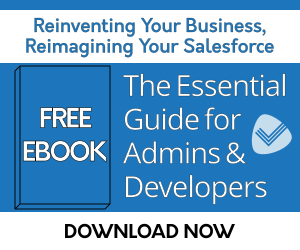Building and Implementing a Sound Data Governance Program
2024/05/20

A key responsibility of every business’s IT and Analytics department is to establish and execute a comprehensive data governance program. Executive leadership teams view this function as vital to a company’s overall risk management and growth potential—and with good reason. This applies to businesses of all sizes, from small to very large.
- Data is the life’s blood of a business, affecting everything from strategy to tactics and all activities in between. Ensuring its quality (accuracy, completeness, consistency, and timeliness) is of the utmost importance.
- Data use is highly regulated, exposing companies to compliance and protection issues, and the potential penalties associated with them. Security and privacy must be strictly enforced.
- Data must be managed throughout its lifecycle, and this requires the establishment of various processes and practices. Considerations include data architecture, integration, modeling, retention, and storage.
- To accomplish the above, a structure for data stewardship is required, outlining the people, roles and standards that drive accountability, responsibility and accessibility.
Ensuring High-Quality Data Is a Key Pillar of Governance
Proper governance of data is no easy task. It encompasses considerable effort and investment. There is no shortcut or quick fix—and given the risks why would you want one? Moreover, each of the pillars need attention. You can’t forsake one for another. In fact, privacy and security are required by law and regulation.
However, an argument can be made that data quality is first among equals. All of a company’s governance efforts would seemingly be for naught if the actual data at the heart of it all is of poor quality. This was confirmed by a recent Salesforce® research report, “2023 State of Data and Analytics.”
In it, Salesforce reported the top three priorities for analytics and IT leaders:
- Improving data quality
- Strengthening security
- Building out AI capabilities
Weighing Data Quality Governance Considerations
In the quest to improve data quality governance, the first step involves defining data standards and ensuring they are followed by all stakeholders in the company. This requires constant education and vigilance.
To reinforce those standards, companies must develop data validation and cleansing processes. In addition, data quality monitoring and reporting mechanisms should be used to alert the appropriate people when data issues emerge. The goal is to find and fix these issues as soon as possible.
Ultimately, you want to automate as much of this function as possible, eliminating the need for manual processes. It’s also important to “democratize” data quality efforts. It shouldn’t fall all on one team or handful of people. The people closest to the data creation, maintenance, and usage are the Salesforce users who know it best. Admins play a key role in establishing the governance structure, but it’s the users who are best positioned to elevate the data itself.
Selecting the Right Tech Solution
Picking the right governance solutions bring all of these efforts together. For the data quality component, the Salesforce app Data Quality Helper could play a large role by:
- Allowing Admins to create enhanced soft and hard data validation rules and flexible data duplication rules, which are much more powerful and useful than standard Salesforce functionality. Overcome default limitations and amplify data quality efforts.
- Letting Admins customize the text and display of warning notifications shown to users when these rules are triggered, better informing users of the needed next steps to resolve data issues. The rules and warnings are always watching over the data 24/7.
- Empowering users with an easy-to-use interface that discovers issues and helps users resolve problems with existing and newly created records as soon as possible. This makes data cleansing a real-time proactive effort, instead of reactive to problems that unfortunately may have been long-standing.
The free version of Data Quality Helper allows for the configuration of two validation rules and one duplicate rule. The premium version allows for unlimited rules of either type, making it an ideal tool for data quality governance.
Poor data quality silently sabotages your people, productivity, and profits day in and day out. Don’t delay. Install the free version of Data Quality Helper from the Salesforce AppExchange today.
| How to Choose the Right Salesforce Development Partner for You | Passage Technology Blog | Ask PT About Using Business Process Automations for Project Planning in Salesforce |


